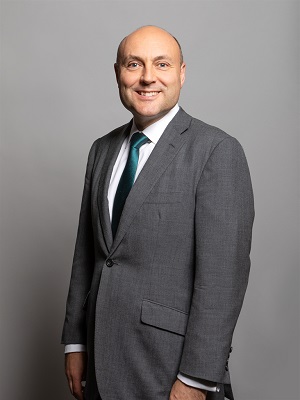Last week, the Coastal West Sussex Partnership and Worthing consultancy Always Possible came together to host the second in a series of webinars on business and climate change, following the Partnership’s Race to Net Zero conference in October last year.
Chaired by Always Possible CEO Richard Freeman, the Ideas Exchange aimed to build on the feedback already provided by businesses in the region on what support they need to become more sustainable and reach net zero.
Andrew Griffith, MP for Arundel and South Downs and the UK’s Net Zero Business Champion, kicked off the discussion by reiterating his belief that West Sussex is uniquely placed to be a part of the climate revolution, and how smaller businesses are able to move faster in making the changes needed.

He said: “Business can drive great change in society and do enormous good. Today’s small businesses are tomorrow’s bigger businesses.
“I think it’s helpful to compare the low carbon revolution to the digital revolution – it’s not going to happen overnight, but lots of people are starting to embrace greener technology.
“As a country it’s our ambition to get to net zero by 2050, but most businesses should be able to get there a lot quicker.”
Andrew added that transport is one of the biggest challenges for businesses, in terms of cutting emissions – but that switching to local suppliers can make a huge difference – and this applies to public sector procurement too.
He also pointed to a few national and regional resources to help businesses make a start on reducing their environmental impact:
- The government’s SME Climate Hub
- The government’s Help to Grow digital scheme (while not focused on sustainability, going digital can help reduce your carbon footprint)
- Low Carbon Across the South and East (LoCASE) – a scheme which provides grants to companies which are taking steps to become more energy efficient.
The webinar also heard from Sam Zindel, managing director of Brighton digital marketing agency Propellernet, which has prioritised reaching net zero as a company and is a certified BCorp. Sam is also the founder of Low Carbon Leaders, which aims to support and inspire other SMEs on their net zero journey.
Sam relayed the findings from a survey conducted by Coastal West Sussex Partnership and Low Carbon Leaders at the end of last year, which found that although more than half of businesses surveyed had taken steps to reduce their emissions in the last 12 months, 80 per cent had not actually measured their carbon footprint or set a reduction target.

Within the survey, businesses fed back that they would like support in the form of: funding and grants for cutting carbon emissions, recommendations for how to hit net zero and help with measuring their carbon footprint.
Based on these findings, the Coastal West Sussex Partnership and Always Possible identified four areas for discussion which could help businesses and local authorities move forward in reaching net zero.
These were:
- Active collaborations – identifying ways to share expertise locally, including between universities, businesses and local authorities, and skills training
- Recognised certifications – to support businesses and promote the benefits and opportunities for companies going green
- Procurement – changing the process for local authorities to give more weighting for sustainability
- Publicity – to showcase successful businesses which have made the transition to net zero and are reaping the benefits.
It was agreed that currently there is a lot of confusing information out there about sustainability and little in terms of standardisation, and businesses would benefit from knowing about credible certifications. Sam Zindel recommended the Science Based Targets initiative (SBTi) as a useful resource which helps companies with a clearly-defined path to reduce emissions in line with the Paris Agreement goals, and added that more locally, the Green Growth Platform at the University of Brighton can provide support.
For active collaboration, the question was raised about whether a central hub is needed to coordinate this knowledge sharing – and whether the Coastal West Sussex Partnership could expand on its existing work.
On procurement, councillors and local authority leaders agreed that sustainability needs to be dialled up, with an explicit definition for what sustainability means and ways of checking company credentials. Cllr Adrian Moss of Chichester District Council said that local authorities need more flexibility in procurement, while Catherine Howe, chief executive at Adur and Worthing Borough Councils, said that councils should be prepared to take more risks and set a good example for businesses – particularly in using local suppliers.
Richard Freeman ended the webinar by announcing that local authorities in West Sussex have been working together to secure funding for the low carbon agenda, and said work is underway to build case studies and showcase the local businesses leading the way on carbon reduction.
The will from local businesses is really encouraging and the conversation does not end here – please check our events page and social media channels for further updates.
